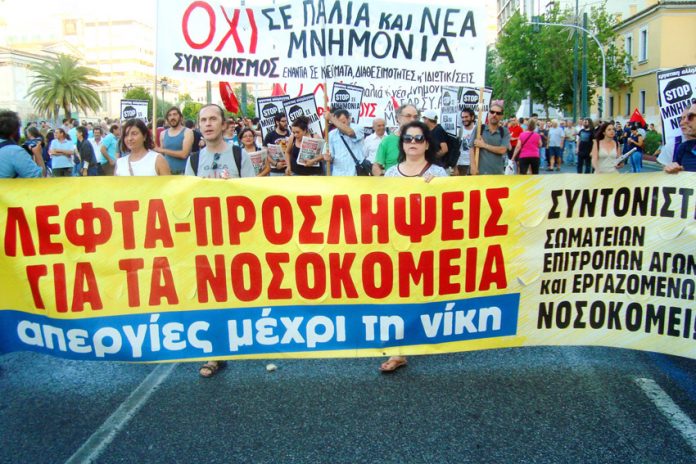
SYRIZA leader Alexis Tsipras announced on Thursday evening that he was resigning as Prime Minister and has called an early Greek election.
Tsipras, who was only elected in January, said he had a moral duty to go to the polls now a third bailout had been secured with European creditors. In his TV announcement, he said: ‘The political mandate of the 25 January elections has exhausted its limits and now the Greek people have to have their say. I want to be honest with you. We did not achieve the agreement we expected before the January elections.’
Tsipras made his announcement in the wake of 43 of Syriza’s 149 MPs either opposing the bailout or abstaining in last Friday’s Greek parliamentary vote that approved the latest deal which includes more painful state sector cuts, including far-reaching pension reforms.
He met President Prokopis Pavlopoulos later in the evening on Thursday to submit his resignation, telling him: ‘The present parliament cannot offer a government of majority or a national unity government.’
The election date is yet to be set but earlier reports suggested 20 September. However, if a government resigns within a year of election, the constitution requires the president to ask the second-largest party, in this case the right-wing New Democracy, to try to form an administration. President Pavlopoulos met New Democracy leader Evangelos Meimarakis yesterday morning and asked him to try to form a government.
Meimarakis has three days to seek coalition partners before having to return the mandate, which would then go to the third largest party in Parliament for a further three days at most. The third largest party is now a new movement formed by the 25 MPs who split from Syriza yesterday, named Laiki Enotita (Popular Unity) and led by former energy minister Panagiotis Lafazanis.
If Popular Unity fails to form a government the baton would be passed to the neo-fascist Golden Dawn party. If a new government is not formed, the Vouli (parliament) will be dissolved and a caretaker government appointed to lead the country to early elections within a month.
Martin Selmayr, chief-of-staff to European Commission President Jean-Claude Juncker, tweeted that ‘swift elections in Greece can be a way to broaden support’ for the bailout deal. Greece remains under strict capital controls, with weekly limits on cash withdrawals for Greek citizens.